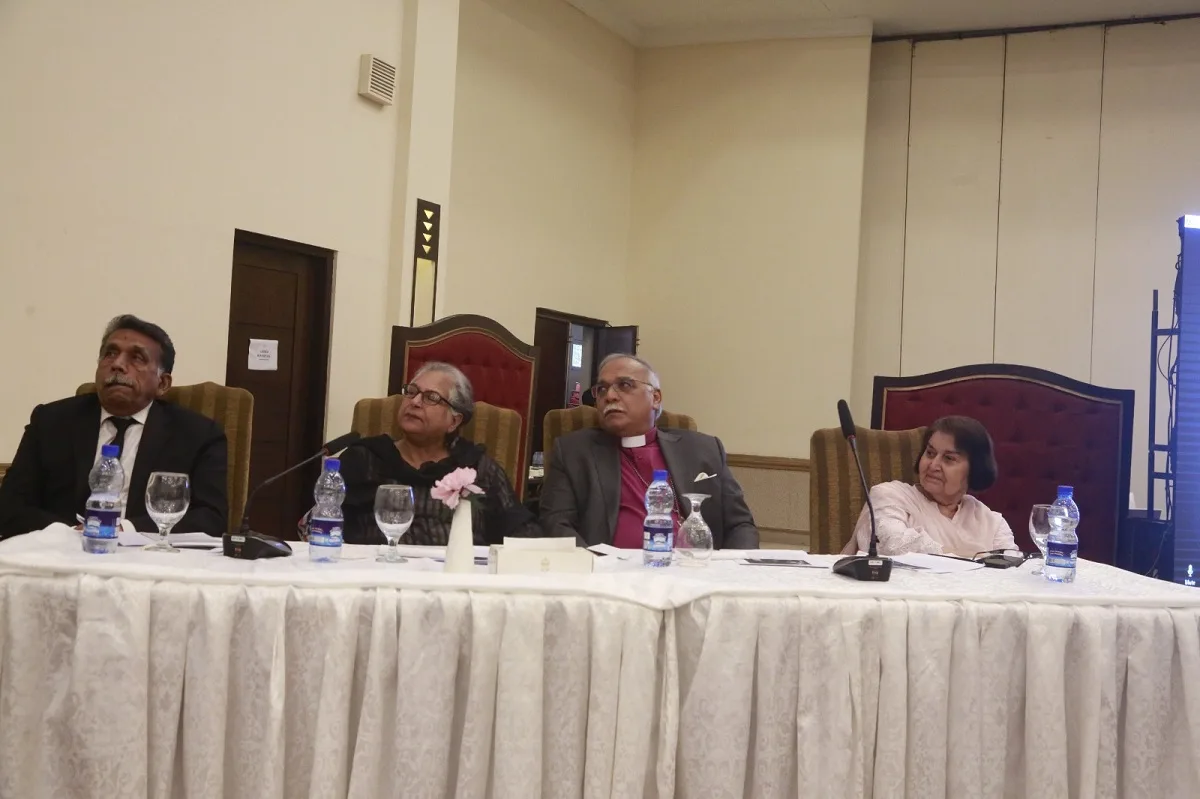LAHORE, Pakistan: A People’s Inquiry into “Countering Religion-based Violence” held by a penal of experts composed of Justice (R) Nasira Javed Iqbal, Hina Jillani Advocate, Jamshed Rehmat Ullah Advocate, Bishop Azad Marshal, Peter Jacob and Saroop Ijaz Advocate concluded that the version of the police regarding the investigation has been shifting from one assumption to the other, from foreign conspiracy to honor crime to personal interests in the Jaranwala incident.
The recent police version in the investigation does not support the assertion made by the Punjab Inspector General of Police’s version regarding the involvement of foreign elements in the Jaranwala violence, for which he is yet to present any proof.
The eye-witnesses as well as the victims confirmed in their testimonies that the mob violence in Jaranwala was a pre-planned activity for political motives. The inquiry observed that the police were reluctant to apprehend the actual perpetrators of incitement through planted blasphemy charges. Hence, a narrative emboldens the extremist outfits politicizing blasphemy accusations on one hand, and victimizing the members of the Christian community in Sargodha and Jaranwala.
The inquiry further observed that the police are making a conscious attempt to cover up the mob violence, and have understated the looting of belongings, destruction, and arson of Churches and houses in Jaranwala incident, and they are carrying out illegal arbitrary detentions of men, women, and children in the name of investigation, which seems to be an attempt to pressurize the Christian community not to pursue cases and seek justice.
Click Here for the Factsheet-Religion-based-violence-in-Punjab-2023-September
Speaking on the occasion, the executive director of Centre for Social Justice (CSJ), Peter Jacob demanded a fair and impartial investigation in all cases involving blasphemy accusations.
Bishop Azad Marshal stated that it is proven time and again that accusations are fabricated against minorities and some quarters are manipulating legal procedures while religious minorities are forced to become second-class citizens of Pakistan.
The chairperson of Human Rights Commission of Pakistan, Hina Jillani stated that civil society condemns the lawlessness, particularly the arbitrary detentions of children and women in Jaranwala. She encouraged civil society and national human rights institutions to monitor the situation to ensure a fair and transparent investigation and trial.
Victims and witnesses who had experienced mob violence on 16 August in Jaranwala stated that it was the failure and indifference of the police that made mob violence and looting possible. The police illegally detained those Christians for several days in the name of investigation who were not nominated in FIR including; men, women, and children. Although 36 detainees were released, however, many are still in police custody according to reports.
The experts also observed that the incidents involving blasphemy accusations in different parts of the Punjab have created a social apartheid for minorities. Christian students are reluctant to continue their education in schools due to the discrimination and intolerance they had to face after Jaranwala incident. The greengrocers and shopkeepers refuse to sell eatables to Christians, and employers deny employment to Christian workers.
Samuel Pyara, Lala Robin Daniel, Prof. Anjum James Paul, Michelle Chaudhry, Eiga Kenny, Qammar Suleman, and Haroon Ranjha Advocate gave their testimonies, and Journalists Sher Ali Khalti and Xari Jalil asked questions and gave their analysis in People’s Inquiry by CSJ, Peace & Justice Network (PJN) and Joint Action Committee for Peoples Rights (JAC).
A fact sheet “Provided We Learn” was issued that documented the incidence of religion-based violence targeting faith minorities on the pretext of blasphemy accusations in Punjab. The participants resolved that they would strive to uphold truth, uphold the standards of justice, and continue to engage in litigation and advocacy efforts for the cause of equality of rights and citizenship, and demanded the introduction of safeguards against the misuse of blasphemy laws.
The participants demanded that the religious apartheid must end, and the leadership in the country should make serious efforts to live up to their claims about the protection of minorities.




